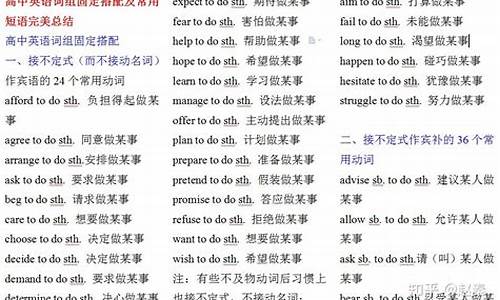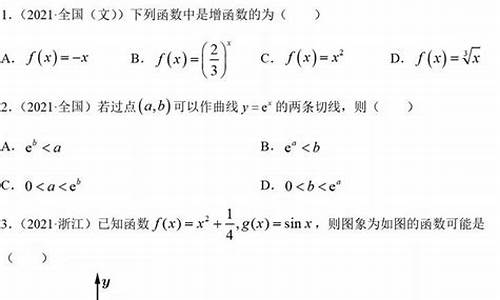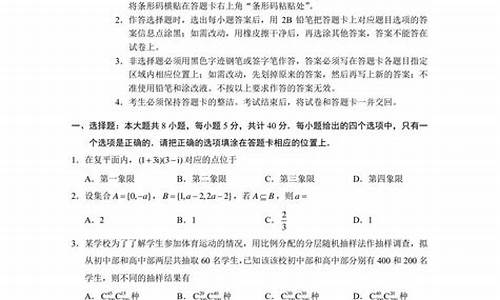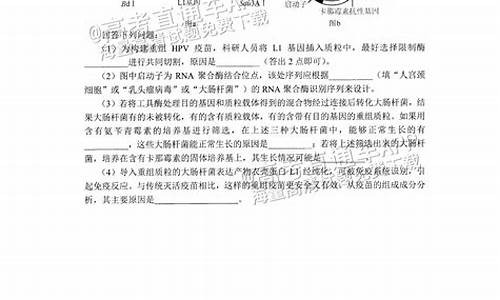您现在的位置是: 首页 > 招生信息 招生信息
高考常考介词用法_高考常考介词短语
tamoadmin 2024-06-26 人已围观
简介1.高中有哪些短语的to是介词2.expect for和expect的区别是什么?3.英语介词的用法4.高考英语语法:高中英语语法-英语介词的翻译技巧5.高中英语 除了 的用法 比如apart from besides except for之类之类意思的词组或者单词的用法区别及意义6.在高中阶段的英语中,常见的介词有哪些,以及他们的主要用法.回答希望可以详细而简练.先谢了7.高考英语语法: 介词短
1.高中有哪些短语的to是介词
2.expect for和expect的区别是什么?
3.英语介词的用法
4.高考英语语法:高中英语语法-英语介词的翻译技巧
5.高中英语 除了 的用法 比如apart from besides except for之类之类意思的词组或者单词的用法区别及意义
6.在高中阶段的英语中,常见的介词有哪些,以及他们的主要用法.回答希望可以详细而简练.先谢了
7.高考英语语法: 介词短语用主动表被动的六种情形

要例句你可以去买书,很全.看电脑屏幕倒不习惯.
高中英语介词短语/动词短语汇编
一.相近介词和介词短语
1. With the help of 在~~帮助下
under the leadership / care of 在~~领导/关心下
2. be strict with sb. 对~人要求严格
be strict in sth. 对~事要求严格
3. at present=at the present time 目前
for the present 暂时
4. in the sun/sunshine 在阳光下
under the sun 在世界上
5. lie in 位于~~之内
lie on 同~~接壤
lie to 位于~~之外
6. at least 至少
in the least 丝毫,一点
7. by name 名叫
in the name of 以~~名义
8. in the air 空中,在流传
on the air 播出
9. in the way 挡路,障碍,用~~方法
in a way 在某点上,在某种程度上
get one’s own way to do 随心所欲
give way 让步,屈服
lose one’s way 迷路
by the way 顺便说一下
on one’s way to 在去~~的路上
Come this way 这边走
10. at the corner 在拐角处(外角)
in the corner 在角落里(内角)
on the corner 在角落上(外角上)
11. judge by / from 根据~~来判断
judge for oneself 由某人自己来判断
12. at the end (of) 在~~结束时
at the beginning of 在~~开始时
at the back of 在~~背后,支持
at the age of ~~岁时
at the foot of 在~~脚下
at the bottom of 在~~底部
at the top of 在~~顶上
at/on the edge of 在~~边上
13. in the course of 在~~过程中
in the eyes of 从~~观点看来,在~~眼里
in the face of 面对~~,尽管,纵使
in the middle of 在~~中间
in the end =at last=finally 最后
14. on the eve of 在~~前夕
on the side of 在~~一边
15. after a time = after some time 过一段时间后
for a time = for some time 一时,有一段时间
16. behind time 迟到,过期
behind the times 落在时代后面
17. at no time 决不
in no time 立即,马上
18. at one time = once time 曾经
at a time = each time 每次
at times = sometimes 有时
at all times 经常,一直,始终
at the same time 同时
at the time 在~~的时候
by the time 到~~的时候
19. for a moment 一会儿
for the moment 暂时
at the moment 当时
the moment /minute /instance 正当~~一刹那
20. once or twice 一两次
more than once 不止一次
once more 重新,又
once upon a time 从前
once in a while 偶尔
二.归类记忆
1. be on show / display / play / sale / strike / duty / trial
2. be of value / importance / use / no use / color / age / size / height / weight / significance
3. to one’s joy / surprise / pleasure / astonishment / sorrow / delight
4. in surprise / wonder / alarm / terror / horror / delight
5. by air / bicycle / boat / bus / car / letter / post / plane / telephone / train / wire
6. at daybreak / sunrise / dawn / noon/ dark / night
7. out of breath / control / question / sight
8. in fact / reality / substance / nature / practice / theory / short / brief / a word / detail / all / average / full / time / fashion / existence / turn / vain / haste / appearance / common / sum/
general / particular / public / secret / order / part / power / stock / case / bed / future / name / addition / sight
9. on duty / shift / holiday / leave / business / purpose / time / sale / show / board / hand / record / request / root / earth / farm / principle
10. for example / instance / all / good / nothing / convenience / short / fear / sale
11. by weight ( volume size number~~ ) / profession / definition / rule / turn / chance/ accident/
mistake / hand / train ( bus ,taxi ,ship ,boat ~~) / air / land / force / day / nature / sight
12. at most / least / best / worst / once / first / last / home / school / will ( at will:任意) / work /
night / midnight / daybreak / dawn / present / length / large
13. as above / below / following / over / usual / before / a matter of fact
14. above all / measure / normal
15. before all / long / time / now / then
16. after all / class / school
17. out of action / order / condition / use / operation / step / joint / repair/ gear / balance / range/
doubt / date / danger / hand / shape / place / question / stock /
18. with caution / interest / difficulty / ease / advantage / effect / reason / vigor / reserve / success / confidence
19. beyond comprehension / conception / description / expression / doubt / control / reach / power / measure / grasp / compare / controversy / dispute / hope / example
20. under age / discussion / test / way / repair
三.组合记忆
(1)由两个词组成的复合介词.
1. 以of结尾
ahead of , aside of , because of , east of , west of , instead of , short of , lack of , regardless of
2. 以to结尾
according to , as to , counter to , due to , owing to , next to , previous to , prior to , apostle to ,
relative to , subject to , subsequent to , on to , thanks to
3. 以with结尾
along with , together with
4. 以for结尾
as for , but for , except for , save for
5. 以from结尾
from above , from below , from among , from between , from beneath , from behind ,
from over
(2)由三个词组成的复合介词.
1. 以in开头
in addition to , in advance of , in agreement with , in case of , in charge of , in comparison with
in consequence of , in consideration of , in (the) course of , in contrast with , in the face of ,
in favor of , in front of , in honor of , in (the) light of , in the middle of , in the name of ,
in need of , in obedience to , in opposition to , in place of , in preference to , in (the) process of
in regard to , in reply to , in respect of
2. 以by开头
by means of , by order of , by reason of , by virtue of , by way of
3. 以at开头
at the beginning of , at the cost of , at the end of , at the hands of , at mercy of , at the point of ,
at the risk of
4. 以with开头
with an eye to , with the exception of , with the purpose of , with reference to , with regard to,
with respect to , with a view to , with the view of
5. 以for开头
for the benefit of , for fear of , for lack of , for the good of , for the sake of
6. 以under开头
under cover of , under pain of , under the present of
7. 以on开头
on account of , on behalf of , on the occasion of , on the part of , on the point of , on top of
四.省略介词,意义不变
1. I will share (in) the pleasure with him.
2. I spent two hours (in) reading the article.
3. I’ll write (to) you a letter.
4. He plays (on) the piano every evening.
5. Smith has traveled (through) China.
6. They are fighting (against) their enemy.
7. Please fill (in) the blanks in the following.
8. The houses face (to/on) the south.
9. She scolded (at) her child yesterday.
10. It is (of) no use talking.
11. There is no use (in) talking.
12. We couldn’t prevent them (from) getting married.
13. He is busy (in) preparing for the exam.
14. I have studied English (for) ten years.
15. This shirt doesn’t fit (for) me.
16. I want a place to live (in) .
17. You ought to break (off) this habit.
18. She always share (in) my troubles as well as (in ) my jobs.
五.动词词组及短语
1. 以break为中心的词组
break away from 脱离,逃离
break down 破坏,粉碎;瓦解;出故障,抛锚
break in 闯进,打断;使顺服
break into 闯入;强行进入;突然开始
break out 爆发,发生;准备使用;起锚
break the law 违反法律
break the record 破记录
break one’s promise 失言
break up 开垦,破碎;解散,分开,分解
2. 以catch为中心的词组
be caught doing 被发现做某事
be caught in the rain 淋雨
catch a bus/train 赶汽车/火车
catch a cold 伤风,感冒
catch one’s word 听懂某人的话
catch sight of 发现,瞥见
catch up with 赶上,追及,追上
3. 以come为中心的词组
come across 偶尔发现,想起;越过;偿付
come along 一道来,陪伴;进步,进展;出现
come at 达到,求得,得到;扑向,袭击
come back 回来;恢复,复原
come down 倒下;降落;跌落;病倒
come from 来自,起源于,从~~产生,生于
come in 进来,进入;流行起来;获名次
come into being 发生,产生,出现,形成
come into power 开始执政,当权,当选
come into use 开始使用,获得应用
come on 上演;开始;赶快;发展;登台;(问题)被提出
come out 出来,传出;出版;结果是;褪色;(秘密)泄露
come to 苏醒,复原;共计;达到;归结于
come to an end 终止,结束
come to know 开始了解到
come true 实现,成为现实;证实
come up 走近;上楼;长出,发芽
4. 以do为中心的词组
be done in 精疲力竭
be done with 完全结束
do a good deed 做一件好事
do away with 去掉,废除;弄死;浪费
do good to (=do sb. good) 有益于
do harm to (=do sb. good) 有害于
do its work 有效,有作用
do much 极有用
do wrong to 做错
do one’s best 尽某人最大努力
do one’s homework 做作业
do one’s utmost 尽力而为
do proud 足以使~~骄傲
do sb. justice 公平对待某人
do some cleaning (V+ing,etc.) 搞卫生
do sb. a favor 帮助某人
do well in 学得不错,干得漂亮
do with 和~~相处,忍受,处理
do without 不需要,不用
do wonders 创造奇迹
have much to do with 和~~很有关系
have nothing to do with 与~~无关
have something to do with 和~~有关
in doing so=in so doing 这时,在这种情况下
That will do. 行了;够了
5. 以get为中心的词组
get about 徘徊,走动,旅行;流传
get above oneself 自视高傲
get accustomed to 习惯于,对~~习以为常
get across 度过,通过,横过;说服,使理解
get ahead of 胜过,超过
get along 前进,进步;同意;离去
get along with 与~~相处
get at 发现,了解;掌握;攻击
get away 离开,逃脱
get back 取回,回来;报复
get behind 落后;识破
get down 咽下;写下;使沮丧,使抑郁
get down to 认真对待,静下心来
get familiar with 熟悉
get hold of 获得,取得
get home 到家
get in 进入,陷入;牵涉
get off 送走;脱下(衣服);下车;动身
get on 上车;穿上;进步,使前进;成功;相处
get upon with 进步;在~~方面获得成功
get one’s hand in 熟悉;习惯
get out of 由~~出来,从~~得出;避免;退休
get over 越过;恢复,痊愈;克服;完成
get ready for 为~~作准备
get rid of 除去,去掉;免除,摆脱
get through 到达,完成,通过;及格
get together 积聚,积累;商谈,取得一致意见
get up 起床,起立;研究,钻研;致力于;安排,组织
get used to 习惯于
have got to do 不得不,必须
6. 以give为中心的词组
be given to 沉溺于,癖好
give about 分配;传播
give and take 相互迁就
give away 赠送;牺牲;泄露;颁发
give back 归还
give cause 给予~~的理由
give ear to 侧耳倾听
give forth 发出,放出;发表
give in 屈服,让步,投降
give in to 同意,接受;向~~让步
give off 发出(烟,气味)
give oneself out to be/as 自称为
give oneself up to 专心于;向~~自首
give out 分发,公布
give place to 让位于,被~~所替代
give rise to 引起,导致;使~~发生
give sb. to understand 通知某人
give up 放弃;停止
give way to 让步,退却;屈服于
7. 以look为中心的词组
look about 四下环顾;查看
look after 照顾,看管
look around 东张西望
look at 注视,着眼于
look back 回顾
look for 寻找;期待,期望
look down on 俯视;轻视
look forward to 盼望,期待
look into 窥视;调查;浏览
look like 看起来象
look on 旁观;面向
look out 向外看;注意;当心,堤防
look over 从上面看过去;检查
look through 透过~~看去;看穿;浏览
look up to 仰望,尊敬
8. 以make为中心的词组
be made from 由~~原料制成
be made of 由~~材料制成
be made up of 由~~组成
make a fool of 愚弄,欺骗
make a mistake 弄错
make a point of doing 强调;认为~~重要;决心,坚持
make advantages/use of 使用,利用
make after 追求,追赶
make believe 假装
make certain 确信,把~~弄清楚
make contact with 接通,与~~接触,与~~联系
make for 去向,向~~前进;有利于
make friends with 和~~交友
make into 把~~制成,使~~转变为
make much of 重视;理解;赏识
make one’s mind on sth. 决定某事
make one’s own 当作自己的看待
make oneself at home 随便,别拘束
make out 填写;开支票;理解;辨认
make the best of 尽量利用;极为重视
make up 弥补,修理;赔偿,补偿;起草;编造;化装
make up to 接近,巴结;向~~求爱
make way for 为~~让路,让路于
on the make 急求成功;增加
9. 以put为中心的词组
put aside 把~~放在一边;搁置;排除
put away 把~~放好,把~~收拾;储藏;吃喝,吃掉
put back 把~~放回原处;驳回
put down 放下;镇压;制止;记下;削减;降落
put forward 提出;拨快;建议,推荐;提倡,倡议
put ~~ into 把~~放入;插入;翻译成
put off 推迟,延期;消除;推脱,推辞
put on 上演;穿上,带上
put one’s heart into 全神贯注,专心致志
put up 举起,挂起;提名,推荐;陈列
put up with 忍受,容忍
10. 以take为中心的词组
be taken aback 吃惊
take a seat 就坐
take a shower 淋浴,洗澡
take aim 瞄准,设立目标
take away 拿走,减去;夺去
take ~~ by surprise 出奇制胜
take care of 当心,注意;照顾;提防;谨慎;处理,对付;负责
take ~~ for 把~~当作
take off 脱去,除去;离开;起飞;模仿;起程;致死;复制,作副本;减弱
take office 就职,上任
take one’s place 就坐,入坐
take one’s temperature 量体温
take part in 参与,参加
take place = happen 发生,举行
take the place of 代替
take pride in 以~~为荣,对~~骄傲
take sb. by the arm 拉某人的胳膊
take it easy 别着急,慢慢来
11. 以turn为中心的词组
give a new turn to 对~~予以新的看法
in one’s turn 轮到某人做某事
out of turn 不按次序的,不合适宜的
take one’s turn to do 轮到做
turn a blind eye to 对~~视而不见
turn against 背叛,采取敌对态度
turn back 折回,往回走
turn down 折叠,翻下,驳回,拒绝考虑
turn into 走进;变成,变为
turn to ~~for help 求助于
turn off 关上(自来水,电器开关);解雇,辞退;避开(问题);制造;生产
turn on 打开(自来水,电器开关);反对;依靠,依赖,取决于
turn one’s attention to 把注意力转向
turn out 培养;证明是;制成;实际情况是
turn out to be 原来是,证明是,结果是
turn over a new leaf 翻开新的一页,重新开始,改过自新
turn (a)round 旋转,转过身来;改变意见;采取新政策
turn to 变成;着手于
turn upside down 颠倒过来,翻过来;使陷入混乱
高中有哪些短语的to是介词
在英语中,我们除了用连词because, since, as和for来连接表“原因”的分句外,还可以用一些介词短语来表述原因或理由,且语义更丰富,句子更简洁。现将它们归纳整理如下:
1.because of 因为,由于…的缘故,例如:
1)I was late for class because of the rain.
我上课迟到是由于下雨的缘故。
2)Because of his bad leg, he couldn’t walk so fast as the others.
因为他的腿有毛病,不能跟别的人走得一样快。
3)I said nothing about it, because of his wife(’s) being there.
因为他的妻子在那儿,我对这事一字未提。
2.due to 由于…,由于…的原因(理由),例如:
1)The game was postponed due to rain.
比赛因下雨而延期。
2)He made many mistakes due to his carelessness.由于粗心他犯了很多错误。
3)The accident was due to careless driving.
这车祸起因于驾驶疏忽。
3.owing to 因为…,由于…(比because of较口语化),例如:
1)Owing to the shower, the baseball game was interrupted.
由于骤雨,那场棒球赛中止了。
2)They decided to postpone the trip, owing to the change of weather.
由于天气改变,他们决定延期启程。
4.on account of 为…的理由(缘故),例如:
1)The trains were delayed on account of snow.火车因下雪而延误了。
2)At first I hesitated on account of the expense.
一开始我由于价钱的缘故犹豫了一下。
5.as a result of 由于…的结果,例如:
1)He was late as a result of the traffic jam.
由于交通阻塞,他迟到了。
2)As a result of his laziness, he didn’t pass the exam.由于他的懒惰,结果没有通过考试。
6.by reason of (文语)因…的理由,由于…,例如:
1)By reason of his lameness the young man couldn’t play games.
由于残废,那个年轻人不能进行比赛。
2)The scheme failed by reason of bad organization.
那个计划因组织不善而落空了。
7.thanks to 多亏…,由于…,例如:
1)It was thanks to his advice that I succeeded.多亏他的忠告我才得以成功。
2)Thanks to your help, much trouble was saved.亏得你的帮助,省了许多麻烦。
8.on the score of 因…的理由,鉴于…,例如:
1)He was rejected on the score of no manners.他因没有礼貌而被拒绝。
2)The boy couldn’t attend school on the score of ill health.
那个男孩子因健康不佳不能入学。
9.on(the) grounds of 以…为理由,因为…,例如:
1)He was dismissed on (the) grounds of negligence.他因玩忽职守而遭解雇。
2)He was excused on the grounds of youth.
因其年轻,他被原谅了。
10.by/ in virtue of (文语)凭…,由于…,例如:
1)By virtue of his own effort he succeeded in the exam.凭自己的努力,他通过了考试。
2)He claimed a pension in virtue of his long military service.他以在军中服役多年为由要求发给养老金。希望对你有帮助,如果满意的话,望采纳,谢谢
expect for和expect的区别是什么?
高中阶段(至高考)介词to的词组总结如下:
object to(反对),be/get used to(习惯于),look forward to(盼望、期待),be devoted to(致力于、全神贯注于),devote oneself to(致力于),come close to(差一点就),pay attention to(注意),get down to(开始、着手),be reduced to(被迫、沦落到……的地步),take to(变得喜欢、开始经常),fall to(开始),lead to(导致),be opposed to(反对),come to(接近,差一点),refer to(提及、参考),agree to(同意某个观点,注意和agree to do同意做某事的区别),be on the way to(就要……),stick to(坚持)
英语介词的用法
expect for和expect的区别为:指代不同、语法不同、侧重点不同。
一、指代不同
1、expect for:期待。
2、expect:预料。
二、语法不同
1、expect for:expect后有时可用so和not分别代替前面的句子或分句的肯定式或否定式宾语。
2、expect:expect多用作及物动词,可接名词、代词、动词不定式或that从句作宾语,也可接以动词不定式充当补足语的复合宾语。
三、侧重点不同
1、expect for:是一个词组。
2、expect:是一个单词。
高考英语语法:高中英语语法-英语介词的翻译技巧
上一讲,我们讲了形容词和副词。这一讲我们来学学介词。
介词为虚词,不能单独充当句子成分,必须同名词、代词、短语、句子构成介词短语,才能充当句子成分。介词短语在句中常作表语、定语、状语和补足语。介词的用法比较复杂,在英语学习中须多多注意。 想看基础知识,请看介词。
下面我们来学点介词口诀。帮你快速记单词。
一、介词及介词短语
介词像个“游离体”, 名前动后常出现,
一旦组成“某结构”, 句中成分有一位。
“介+宾”叫“介短”, 作“形、副”句里边。
“宾补、表、定、状”, 都能用得上①。
“动+介”——动词性②, “及、不及物”谓语用。
成语、习语常固定, 应用起来有弹性。
注 ①介词后面的名词、代词或数词是介词的宾语,介词和介词宾语合成介词短语。介词短语在句中的语法作用相当于形容词或副词,在句中做宾(主)语、补足语、表语、定语或状语。
②“动词+介词(副词)”组成一个动词词组或短语动词,其语法作用相当于一个及物动词或不及物动词,在句中作谓语。
二、介词在句中的位置
介词活跃句关键, 短语合成形简单,
独作成分看不见, 介短表定状可担。
before时空在之前, after之后off远。
直上 over,above斜, under,below下相反。
直到till,on表面, 穿过through,for因缘。
by表旁边in里面, with伴随by车船。
时间地点at、in、on, 二者between多among,
behind后面beside旁, 附近near沿着along。
from来自like像, 表示目的for,to当。
of所属周围round, 向上up向下down。
三、on,at,in用法巧记
on,at,in这三个常用介词都可以表示时间和地点,但具体用法不同,多数学生对它们混淆不清。现在只要记住了口诀,就可避免at,on,in的种种误用。
1. on,in,at表示时间
on“在具体某一天”①
“当某时”,动名词, arrival,death前;
用in一般“上”“下”“晚”;
on用于天,in用于月、季、年③;
限定三时in要变。④
at是个时间点,
“工作”“时刻”与“圣诞”⑤。
at noon(night),in the day,
习惯用语记心间。
注:①on表示在具体某一天及具体某一天的上午、下午和晚上。
例 On Mother's Day, we should sned flowers to our mother. 母亲节,我们应该送花给我们的母亲。
On my arrival home,I found he had gone already.当我到家时,我发现他已经走了。
② 当early,late用于句首修饰介词短语时,尽管表示具体某一天的上午、下午、晚上,都要用in,泛指一般的上、下午,晚上也用in 。
例 Early in the morning of National Day,I got up to catch the first bus to the zoo. 国庆节一清早,我便起床去赶到动物园的第一班公共汽车。
My father begins work at 8:00 in the morning and stops work at 4:00 in the afternoon. 我父亲上午8点上班,下午4点下班。
③于将来时态表示“过一段时间后” 及表示“在……期间” 和“在某个季节,某年、某月” 都用in。
例 I hear he’ll be back in a month.我听说他将于一个月后回来。
In the course of the last lesson in French,little Franz was listening to the master very attentively.在那最后一堂法语课中,小弗朗兹非常用心地听着老师讲。
Xiao Ming was born in December of 2004. 小明生于2004年12月。
④当 morning,afternoon,evening有前位定语或后置定语限定时,就不用in而用on。
例 on a hot (summer) noon 在一个炎热(夏天)的中午
on Monday Morning 在星期一上午
on the morning of March 8th在3月8日上午
⑤ 表示某时某刻及在work,Christmas前用at。
例 We get up at eight o’clock. 我们8点起床。
My father are busily at work all day. 我父亲整天忙于工作。
In western countries children get present from their parents at Christmas. 在西方国家,孩子们在圣诞节得到父亲给的礼物。
2. on,in,at表示地点
on“在之上”接触面,“靠近、接壤、左右边”①;
in“在里面”和“中间”②;
at表示小地点, “入口、车站、**院”③;
home出现定语、冠, 须用in把at换④;
“夜间、车辆”若有限, 及“在途中”on在前⑤。
注: ①在表示地点时,指“在……之上(与表面接触)” “靠近、接壤”及“在左右边”都用on。
例 There is an English-Chinese dictionary and two grammar books on the big desk.那张大写字台上有一本英汉词典和两本语法书。
Korea lies on the northeast of China. 朝鲜位于中国东北方。
Tom was sitting on my left when we saw the film yesterday. 我们昨天看**时,汤姆坐在我左边。
②表示“在……里面”(即物体内部),“在……中间”(即middle前)都用in。
例 Jim turned the key in the lock and opened the door. 吉姆把钥匙插在锁孔里,转动一下,打开了门。
Soon they were in the middle of the river. 很快他们就游到了河中间。
③ at表示一个较小的地点,如在“入口”(entrance)“车站”(bus stop,railway station)和“影剧院”(cinema,theater)等名词前。
例 As she walked along,she noticed an old pine tree ahead at the entrance to a valley. 她往前走时,注意到前边峡谷口有棵老松树。
④home前一般用at,但若有物主代词和冠词等定语修饰时,须用in。
例 In Princeton he lived quietly,working at the institute and enjoying himself by playing his violin in his simple home. 他在普林斯顿过着安静的生活,在研究所工作,在他那简朴的家里拉琴消遣。
⑤“夜间”(night)、“车辆”(bus,bike,train ect.)等名词若有限定词及“在……途中”,介词则用on。
例 He was in on that night. 他那天夜里在家。
My son often goes to school on his bike.我儿子常骑自行车去上学。
On the way home my father told me of an incident that took place on his first day at school in Mr Crossett's class. 在回家途中,父亲给我讲了他第一天上克罗塞特先生课时发生的一件事
学了这些口诀,我们来看看历年的高考英语中,对介词的考查。
典型题例一:
1. —How long has this bookshop been in business?
—________ 1982. (NMET 1994)
A. After B. In C. From D. Since
析:D。 根据How long的语境含义及现在完成时的时态特点,该空应填Since,表示“自从”。
2. The train leaves at 6:00 pm. So I have to be at the station ________ 5:40 pm at the latest. (NMET 1997)
A. until B. after C. by D. around
析:C。分析语境逻辑可知,该空应填by,表示“到……为止”。
3. —You are so lucky.
—What do you mean ________ that? (NMET 2002北京春季)
A. for B. in C. of D. by
析:D。分析语境含义可知,该空应填by,表“通过”。
4. The number of the employees has grown from 1,000 to 1,200. This means it has risen ________ 20 percent. (NMET 1999上海)
A. by B. at C. to D. with
析:A。该空表示增长幅度,应填by。
5. The sunlight came in ________ the windows in the roof and lit up the whole room. (NMET 2001上海)
A. through B. across C. on D. over
析:A。该空表示通过(窗户),应填through。
6. Luckily, the bullet narrowly missed the captain ________ an inch. (NMET 2002上海)
A. by B. at C. to D. from
析:A。该空表偏离幅度,应填by。
总结归纳:以上各题都是根据语境填入适当的介词。高考英语试题常设置特定语境考查热点介词的用法,这些介词常表示时间、手段、幅度、动作等。
应对方法:认真分析语境逻辑推断空档含义,根据空档含义及语境选择适当的介词。
典型题例二:
1. Your performance in the driving test didn’t reach the required standard —________, you failed. (NMET 1999)
A. in the end B. after all C. in other words D. at the same time
析:C。空档前后内容含义相同,应填in other words。
2. For miles around me there was nothing but a desert, without a single plant or tree ________. (NMET 1997上海)
A. in sight B. on earth C. at a distance D. in place
析:A。该空表示视野范围之内,应填in sight。
3. —You seem to show interest in cooking.
—What? ________, I'm getting tired of it. (NMET 2000上海春季)
A. On the contrary B. To the contrary C. On the other hand D. To the other hand
析:A。由What? 和I'm getting tired of it.的语境含义及逻辑可知,该空表示否定含义,应填On the contrary。
总结归纳:以上三道题都是根据语境填介词短语。高考英语试题常设置特定语境考查热点介词短语的用法,这些介词短语常以介词+宾语的形式出现。
应对方法: 分析语境逻辑推断空档含义,再根据空档含义及语境背景选择适当的介词短语。
典型题例三:
1. We offered him our congratulations ____ __ his passing the college entrance exams. (NMET 1993)
A. at B. on C. for D. of
析:B。congratulate或congratulations后常与on连用,表示“对……祝贺”。
2. I wanted two seats ________ Madame Curie for Friday night, so I rang the cinema to see if I could book two tickets. (NMET 1998上海)
A. of B. about C. to D. for
析:D。……比赛 / ** / 戏剧的座位,应用...seat for...。
总结归纳:以上两道题都是根据短语搭配填介词。高考英语试题设置特定语境考查考生根据短语搭配确定特定介词的能力,这?%A
高中英语 除了 的用法 比如apart from besides except for之类之类意思的词组或者单词的用法区别及意义
《高中英语语法-英语介词的翻译技巧》由留学liuxue86.com我整理。本内容整理时间为05月12日,如有任何问题请联系我们。
英语介词的翻译技巧
英语中大多数介词含义灵活,一词多义多用。能够正确的掌握介词的翻译技巧对于我们更好的理解和掌握介词的用法具有很好的帮助作用。除了一些常用短语已有译法外,大量介词需要从其基本意义出发,联系上下文加以灵活处理。下面我们就来简明地介绍几种基本译法。
(一)转译:英语中常用介词来表达动作意义。汉译时,可将介词转译成动词。
①在作表语的介词短语中,介词常转译为动词,而连系动词则省略不译。如:
This machine is out of repair.
这台机器失修了。
②在作目的或原因状语的介词短语中,介词有时转译成动词。如:
The plane crushed out of control.
这架飞机失去控制而坠毁。
③在作条件、方式或方法状语的介词短语中,介词有时转译成动词。如:
But even the larger molecules with several hundred atoms are too small to be seen with the best optical microscope.
但是,即使有几百个原子的分子也是太小了,用最好的光学显微镜也看不见。
④介词短语作补足语时,其中介词常转译成动词。如:
Heat sets these particles in random motion.
热量使这些粒子作随机运动。
(二)增译:增词不是无中生有,而是要根据上下文特别是与介词搭配的动词或形容词的含义加得恰当。有不少情况,句中与介词搭配的动词或形容词不出现,如照原文结构无法把意思表达清楚,甚至易于误解时,这就需要增词。如:
Thats all there is to it.
那就是与此有关的全部内容。(原句中 to=related to)
The engineer was taken ill with consumption.It was flour on the lungs,the doctor told him at the time.
这个工程师得了肺一病、那是由于面粉对肺部的影响,当时医生这样对他说的。
因此,熟悉介词与动词或形容词的习惯搭配是增词并正确理解词义的一种重要手段。
(三)分译:介词短语作定语时,往往是定语从句的一种简略形式。介词短语作状语时,有时是状语从句的简略形式。有些介词短语还是并列句的简略形式。因此汉译时,有的可以拆句分译。
①译成并列分句。
The porous wall acts as a kind of seine for separating molecules.
多孔壁的作用就象一把筛子,它把不同质量的分子分开。
②译成让步分句。
With all its disadvantages this design is considered to be one of the best.
这个设计尽管有种种缺点,仍被认为最佳设计之一。
③译成真实或虚拟条件分句。
Mans warm blood makes it difficult for him to live long in the sea without some kind warmth.
人的血液是热的,如果得不到一定的热量,人就难以长期在海水中生活。
④译成原因分句。
We cannot see it clearly for the fog.
由于有雾,我们看不清它。
The machine is working none the worse for its long service.
这部机器并不因使用的时间长而性能变差了。
⑤译成目的分句。
This body of knowledge is customarily divided for convenience of study into the classifications: mechanics, heat,light,electricity and sound..
为了便于研究起见,通常将这门学科分为力学、热学、光学、电学和声学。
(四)不译:不译或省略翻译是在确切表达原文内容的前提下使译文简练,合乎汉语规范,决不是任意省略某些介词。
①表示时间或地点的英语介词,译成汉语如出现在句首,大都不译。如:
There are four seasons in a year.
一年有四季。
②有些介词如for(为了),from(从?),to(对?),on(在?时)等,可以不译。如:
The air was removed from between the two pipes.
两根管子之间的空气已经抽出。
Answers to questions 2 and 3 may be obtained in the laboratory.
问题2和3的答案可以在实验室里得到。
③表示与主语有关的某一方面、范围或内容的介词有时不译,可把介词的宾语译成汉语主语。如:
Something has gone wrong with the engine.
这台发动机出了毛病。
Gold is similar in color to brass.
金子的颜色和黄铜相似。
④不少of介词短语在句中作定语。其中of(?的)往往不译。如:
The change of electrical energy into mechanical energy is done in motors.
电能变为机械能是通过电动机实现的。
Some of the properties of cathode rays listed below.
现将阴极射线的一些特性开列如下。
(五)反译:在不少情况下,有的介词短语如不从反面着笔,译文就不通,这时必须反译。如:
①beyond,past,against等表示超过某限度的能力时,短语有时用反译法。如:
It is post repair.
这东西无法修补了。
There are some arguments against the possibility of life on this planet.
有些论据不同意这行星上可能有生物。
②off,from等表示地点,距离时,有时有反译法。如:
The boat sank off the coast.
这只船在离海岸不远处沉没了。
③but,except,besides等表示除去、除外时,有时用反译法。如:
Copper is the best conductor but silver.
铜是仅次于银的最优导体。
The mdelecular formula,C6H14,does not show anything except the total number of carbon and hydrogen atoms.
分子式C6H14只用来表示碳原子和氢原子的总数。
④from,in等介词短语作补足语时,有时用反译法。如:
An iron case will keep the Earths magnetic field away from the compass.
铁箱能使地球磁场影响不了指南针。
The signal was shown about the machine being order.
信号表明机器设有毛病。 《高中英语语法-英语介词的翻译技巧》由留学liuxue86.com我整理
在高中阶段的英语中,常见的介词有哪些,以及他们的主要用法.回答希望可以详细而简练.先谢了
表示“除了…以外”的介词 besides, except, except for, but, apart from 等。
1) besides 表示“除 … 以外,(还,也)”,相当于 in addition to. 例如:
Besides English, they also study math, physics and chemistry
除了英语以外,他们还学习数学,物理和化学。
注意: 不要将besides和beside 混淆。beside是“在…旁边”的意思。
2) except 表示“除…外,(其余都)…”,常与all,every,no, none, nothing 等含有整体肯定或否定意义的词连用。
except 是英语中少数用法最为活跃的介词之一, 其后除了可跟名(代)词外, 还可跟另一介词短语、动词不定式短语或 that 引导的从句 。例如:
He answered all the questions except the last one.
除了最后一个问题外,所有的问题他都回答了。
I went nowhere except to the library. 除了图书馆以外,我哪儿都没有去。
试比较:
We all went except him. 除了他(没去)以外,我们都去了。
Three others also went besides him. 除了他(去了)以外, 还去了三个人。
[注] except 与 except for区别
except for 也表示“除 … 以外”,但是和 except 不同的是: 与 except 连用的整体词和 except 所跟的词常常是同类的,是指整体除去一部份; 而与 except for 连用的整体词与 except for 所跟的词往往不是同类的,是指整体中除去 一个细节。例如:
Your composition is good except for a few spelling mistakes.
除了几处拼写错误以外, 你的作文写得很好。
Except for an old lady, the bus was empty. 除了有一个老太太以外, 这辆公共汽车是空的。
3) apart from 表示“除 …之外”。根据上、下文的不同,它既可用作 besides, 也可用作 except 和 except for。例如:
Apart from them, I had no one to talk to. (= except)
除了他们以外, 我没有人说话。
Apart from other considerations, time is also a factor. (=besides)
除了别的考虑之外,时间也是一个因素。
(It is) Good work apart from a few slight faults. (= except for)
除了几个小毛病以外,这是一篇佳作。
高考英语语法: 介词短语用主动表被动的六种情形
在英语中,介词(preposition)虽然是一种小词,但在作用和运用上的复杂性却不可小看。首先,可以毫不夸张地说,离开了介词的中介或连接作用,就无法表达某些最基本的思想或概念。以时间为例,大到年代,小到日月,要表示某些特定的时间或时刻,离开介词有时就会寸步难行。比如"今年"虽然可以说this year,但要表达"在2000年",就不能省略介词,而要说in 2000;"这个月"是this month,但"6月里"则需要说in June;"今天"虽然有现成的today一词,而如果是"在6月5日"就要说"on June 5th","在星期五"就得用on Friday(但在某些新闻报道里这些介词也可以省略不用)。再以位置为例,我们可以随便举出book和desk两个词,然后用介词表达出各种位置关系:the book on the desk(桌子上的书)、the book under the desk(桌子下面的书)、the book near the desk(桌子附近的书)、the book beside the desk(桌子旁边的书)等等。
介词不仅具有重要的表达意义的功能,而且在使用上也十分复杂。造成这种复杂现象的原因是多方面的。首先,单个介词(即由一个词语构成的介词,与此相对的是复合介词,比如upon,into,within,without等)本身的意义具有相当的复杂性,以in和on为例,in的基本意义是"在里面",表示一种范围,on的基本意义是"在上面",表示两种东西相接触,然而在speak in English(用英语说)和on the team(在队里当队员)两种形式中,in和on表达的则是引申意义;the boat on the lake指的是"湖上的船",但the cottage on the lake则表示"湖边的小屋"。
其次,英语中的单个介词虽然只有60个左右,但这些介词却可以同其他词类灵活搭配,构成为数众多的短语形式:
1.介词加名词构成的短语,由称介词短语,如by accident(偶然地),on purpose(故意地),for example(例如)in conclusion(总之)等。
2.由名词加介词构成的短语,比如concern for(对……的关心),love for(对……的热爱),satisfaction with(对……满意),confidence in(对……的信任),loyalty to(对……的忠诚)等等。
3.由动词加介词构成的短语,例如insist on(坚持要……),differ from(不同于,区别于),distinguish between(区别,区分),benefit from(从……得到益处,受益于……),conform to(符合)等等。
4.由形容词加介词构成的短语,比如be keen on(对……很热衷),be worried about(为……而担心),be fond of(喜欢),be strict with(对……很严格),be loyal to(终于……)等等。
上述这些搭配形式大都具有固定性,运用时常常来不得半点差错。比如比如be interested只能和in搭配构成介词短语,according和instead只能分别与to和of搭配构成两种短语介词。
此外,英语中还有一类短语介词,也即由介词加其他此类构成的短语,但作用相当于一个介词,比如in front意思接近before,in spite of和despite是一个意思,apart from和意义也很相近等等。短语介词还有很多,再如according to(根据),along with(随同……一起),because of(由于),by means of(依靠),instead of(代替),in accordance with(与……一致,依据),on behalf on(代表),owing to(由于),together with(和……一起),with regard to(关于),as for(至于),as to(至于),in view of(鉴于),for the sake of(为了……),on account of(由于)等等。
最后,单个介词还可以用在一起,这种现象称为双重介词,比如from within(从……里边),from behind(从……后边),from inside(从……里边),from outside(从外边)等等。
其三,同一个介词和不同的词语搭配或者同一个词语和不同的介词结合都可以产生不同的意义,前者如be good at(善于),be bad at(不善于),后者如agree with sb.(同意某人),agree on sth.(同意某事);在有些情况下,同一个介词和不同的词语搭配或者同一个词语和不同的介词结合有时也能产生相同的意义,前者如depend on(依靠),rely on(依靠),count on(依靠),后者如be good at(善于),be skillful in(善于)。
其四,有些结构用不用介词意义完全相同,比如consider后面的as就可以省略而意义不发生变化,而在有些结构中,有无介词意义则不完全相同,比如《红楼梦》中的刘姥姥初进大观园时会说:It is beautiful in here. 而贾府的丫鬟则会应酬说:Yes, it is beautiful here. 刘姥姥的话含有一种对比意义,即大观园和外面相比简直是两个世界,丫鬟已在贾府住习惯了,因此她的话就没有这种对比意义,所以刘姥姥就用了带有比较意义的in here,而贾府的丫鬟则用了没有对比意义的here。
除上面提到的几点外,英汉语不同的表达习惯也增加了介词学习的复杂性,比如英语说in the sun, in the moon,汉语则说"在阳光下"(英语的under the sun是"普天之下"的意思)、"在月光下";英语说The sun rises in the east and sets in the west,汉语则说"太阳从东方升起,从西方落下",或者不用介词,干脆说成"太阳东升西落";英语中的the hole in the wall, the nail in the wall, the map on the wall三个短语中用了不同的介词,而汉语则都用一个"上"字来表达:墙上的洞、墙上的钉子、墙上的地图;汉语可以直接说打某人的某个部位,英语则要先说打某个人,然后再通过介词去打某个部位:beat sb. on the head(打某人的头),同样,英语要说抓着某人某个部位,就得先说抓着那个人,然后再用by来表示被抓着的部位grasp sb. by his hand(抓着某人的手);英语中有besides和except两个词语,汉语可以用"除了"一种形式来表达,但汉语的"除外"既可以指包括,又可以指排除,在这两种不同的情况下,英语就得分别用两个介词来表示:
We all went there besides John. 除了约翰我们也去了那里。(即约翰去了,我们也去了)
We all went there except John. 除了约翰我们都去了那里。(即我们都去了,但约翰没去)
最后,为了解释英语介词用法上的复杂性和灵活多样性,我们特以from一词为例来作进一步的说明。
1.表示纯粹的分离,作"分开"、"分离"、"隔开"、"离开"解,常构成下列表达形式:
separate the good from the evil(把好的和坏的分开)
remove from the city to the countryside(从城市移居乡村)
part from a friend(断交)
depart from one's hometown(背井离乡)
keep away from dangerous things(远离危险)
flee from prison(逃离监狱)
keep (stand. aloof from the society(离群索居)
rise from table(离席)
fall from a tree(从树上掉下来)
withdraw from a meeting(离会)
move from one place to another(从一处迁至另一处)
retire from one's work(退休)
live apart from other people(离群索居)
2.表示"消失"、"消除":
The plane soon disappeared from sight. 飞机很快消失不见了。
After hearing this, the smile fled from her face. 听到这里,她的笑容立即消失了。
Let us remove all doubts from our minds. 让我们消除相互间的猜疑吧。
3.表示"禁止"、"戒除"、"免除"、"解除"、"除去"、"使免除"、"使脱离"等,有时具有否定意义,常构成下列表达形式:
remove dirt from a table(除去桌子上的灰尘)
release sb. from his suffering(解除某人的痛苦)
clear the land from trees(伐去地上的树木)
free sb. from debts(免去某人的债务)
dismiss sb. from his service(解除某人的职务)
expel (dismiss) a student from school(开除学生)
be excused from punishment(被免去处罚)
be safe from danger(没有危险)
be secure from danger(没有危险)
be free from anxiety(无忧无虑)
rescue a person from danger(救人于危难)
deliver a person from danger(救人于危难)
4.表示"防止"、"阻止"、"阻碍"等,有时具有否定意义,常构成下列表达形式:
prevent sb. from doing sth.(防止、阻止某人做某事)
keep sb. from doing sth.(阻止某人做某事)
stop sb. from doing sth.(阻止某人做某事)
hinder sb. from doing sth.(妨碍某人做某事)
prohibit sb. from doing sth.(禁止、阻止某人做某事)
discourage sb. from doing sth.(劝阻某人不去做某事)
dissuade s. from doing sth.(劝阻某人不去做某事)
5.表示"不在"、"缺席"等:
be absent from a class(缺课) absent oneself from class(缺课)
be away from home(不在家) stay away from a place(不在某个地方)
6.与protect, guard, shelter, defend等动词搭配表示"保护":
An umbrella protects us from rains. 伞可以使我们不受雨淋。
The big tree sheltered them from the rain. 大树保护他们没有被雨淋湿。
7.表示"隐藏"、"隐蔽"、"隐瞒"等,常与hide, conceal等动词搭配:
As a student, you should have no secret from you teachers. 作为学生,你不应该有任何隐瞒老师的事。
The house was hidden from view by the trees. 那座房屋被树遮着了。
He always tries to conceal his poverty from others. 他总是设法不让别人知道自己的贫困。
8.与tell, know, distinguish, discriminate, differ, different等词语搭配表示"区别":
Chinese differs (is different) from Japanese in many ways. 汉语和日语在许多方面存在着差异。
It's not easy to tell a true friend from a false one. 辨别真假朋友不是件容易的事。
How would know an Englishman from an American? 你是怎么分辨英国人和美国人的?
You must learn to distinguish good from evil. 你必须学会辨别事情的好坏。
A little baby usually cannot discriminate one thing from another. 婴儿通常不能分辨两种东西。
上述情况表明,在英语学习过程中,介词的确是一种不可忽视的语言现象,首先,介词的重要性要求我们一定要努力学习与掌握,其次,介词运用上的复杂性和灵活性又要求我们在学习与掌握介词的过程中必须抱着慎之又慎态度认真。
高考英语语法:介词短语用主动表被动的六种情形
1、beyond+名词
The rumor is beyond belief. 这谣言难以置信。
The children were beyond control. 这些孩子不听管教。
注这类表达中的名词前通常没有冠词,且该名词一般都具有动作意义,类似的结构还有beyond compare(无可比拟),beyond description(难以形容),beyond (all) doubt(毫无疑问),beyond expression(无法形容),beyond suspicion(无可怀疑),等。
2、in+名词
When was paper money in use in China? 中国什么时候开始使用纸币?
Please do not enter the classroom while a lesson is in progress. 上课时请勿进教室。
注这类表达中的名词前通常没有冠词,且该名词一般都具有动作意义,类似的结构还有 in action(在运转),in sight(看得见),in (good) repair(维修良好的),in store(贮藏着)等。
3、in course of+名词
The new railway is in course of construction. 新铁路正在兴建当中。
The goods ordered are now in course of shipment. 定的货正在运输途中。
注有些类似的短语有the表被动,无the表主动:
in charge of 负责 in the charge of 由…负责
in possession of 拥有 in the possession of 被…拥有
4、on+名词
The building is on fire. 那幢房子正在燃烧。
Every article on view will be on sale. 每件展品都将出售。
注这类表达中的名词前通常没有冠词,且该名词一般都具有动作意义,类似的结构还有on trial(在试用),on display(在展出),on show(在展出),on exhibition(在展出)等。
5、under+名词
The new music hall is under construction. 新的音乐大厅正在修建中。
Your proposal is under consideration. 你的提议正在考虑中。
注这类短语的名词前不用冠词,类似的还有under arrest(被逮捕),under attack(受到袭击),under discussion(在讨论中), under examination(在检查或调查中),under medical treatment(在治疗中),under repair(在修缮中),under review(在检查中),under study(在研究中)。
6、其他介词短语
除以上提到的几种情况外,还有一些介词短语也可表示被动意义,如for sale(供出售),for rent(供出租),at one’s service(听凭某人使用),above reproach(无可指责,无可非议),above suspicion(不受怀疑),above criticism(无可指责),within sight(看得见)等。









